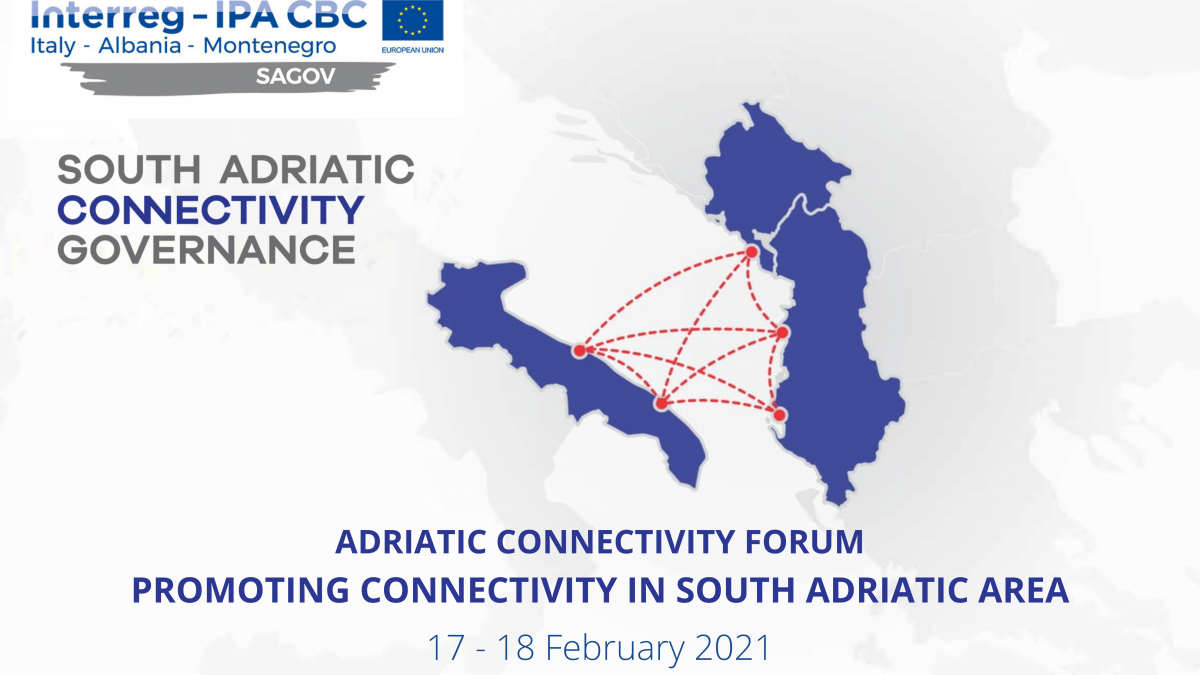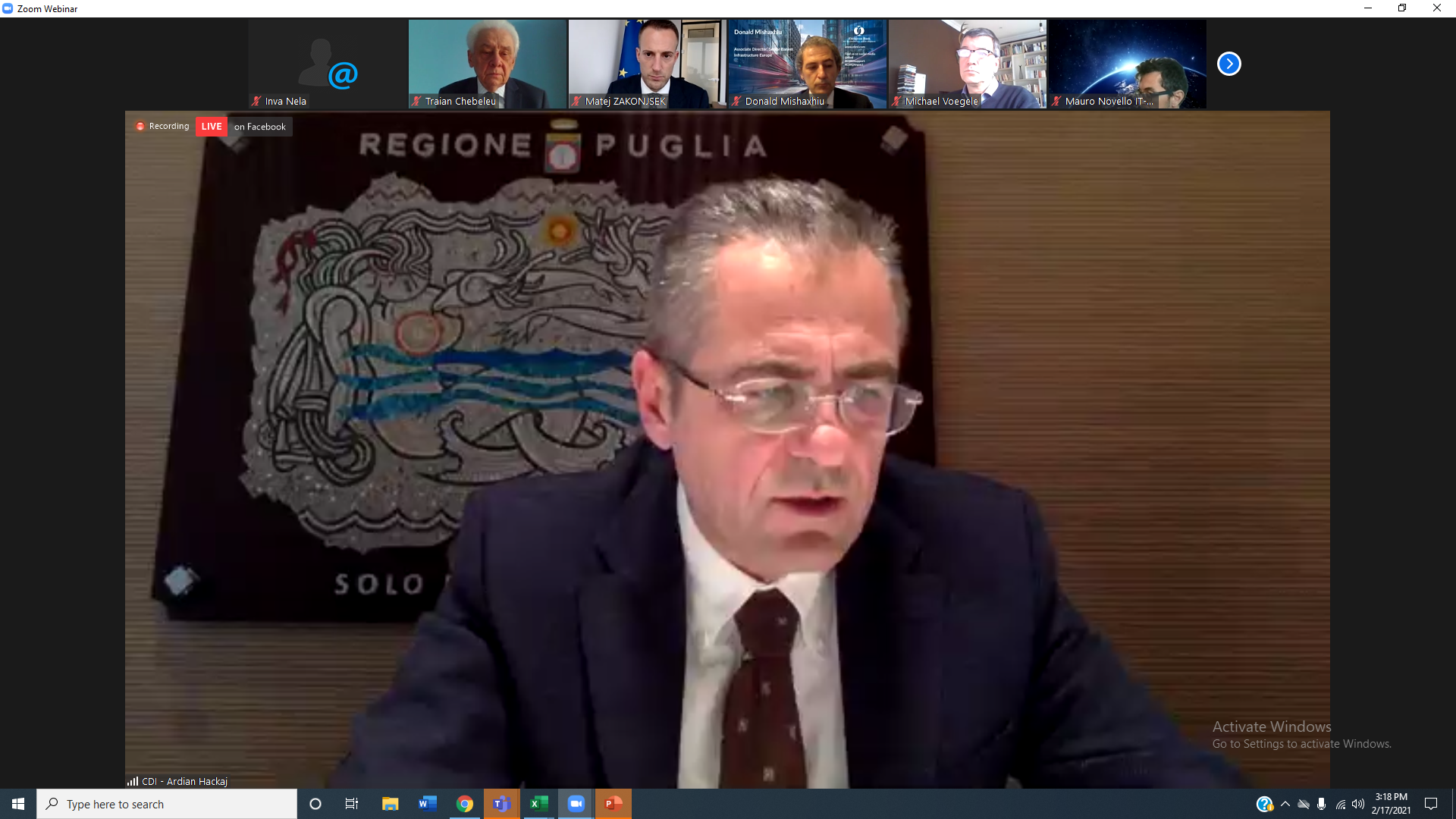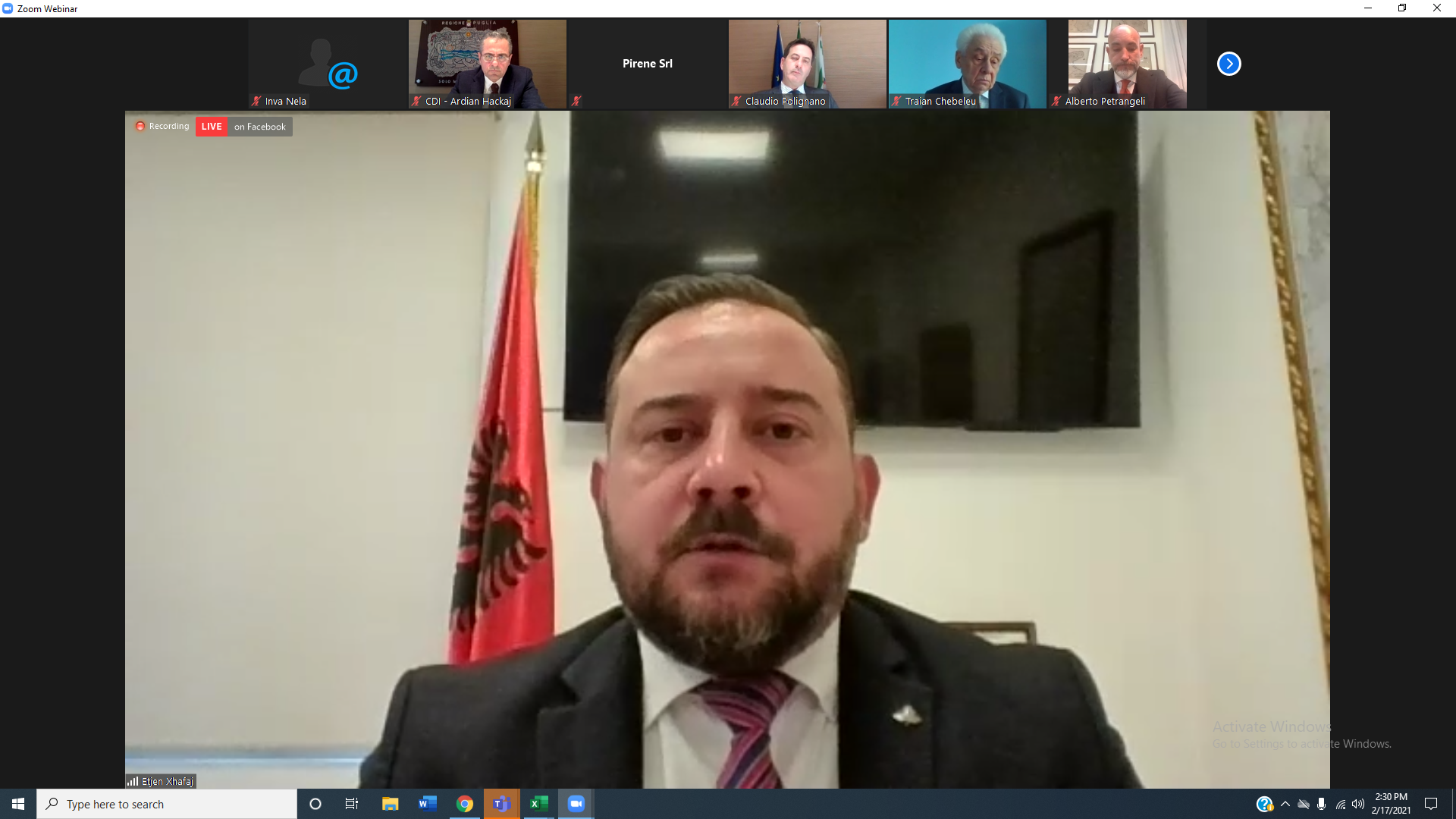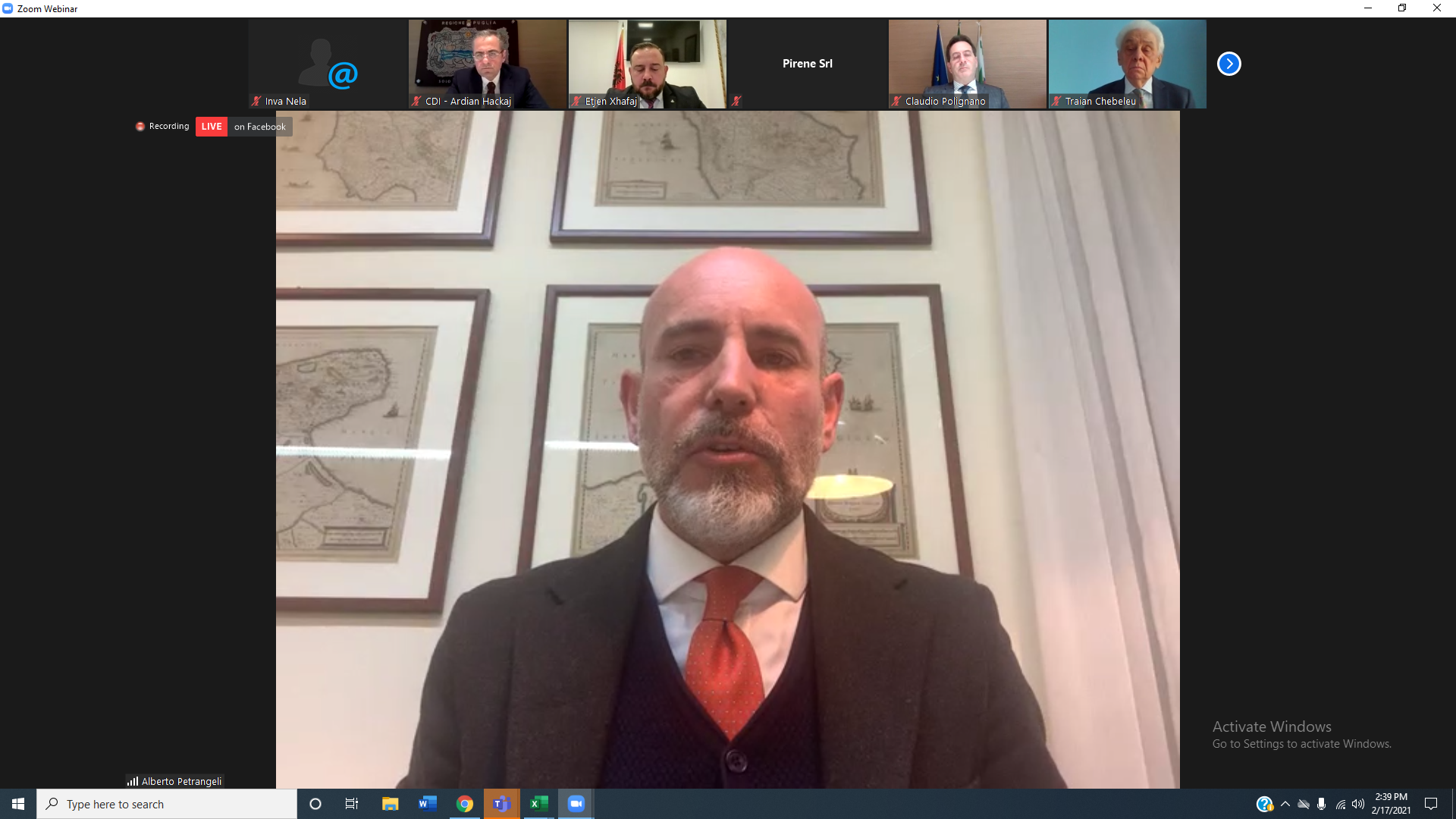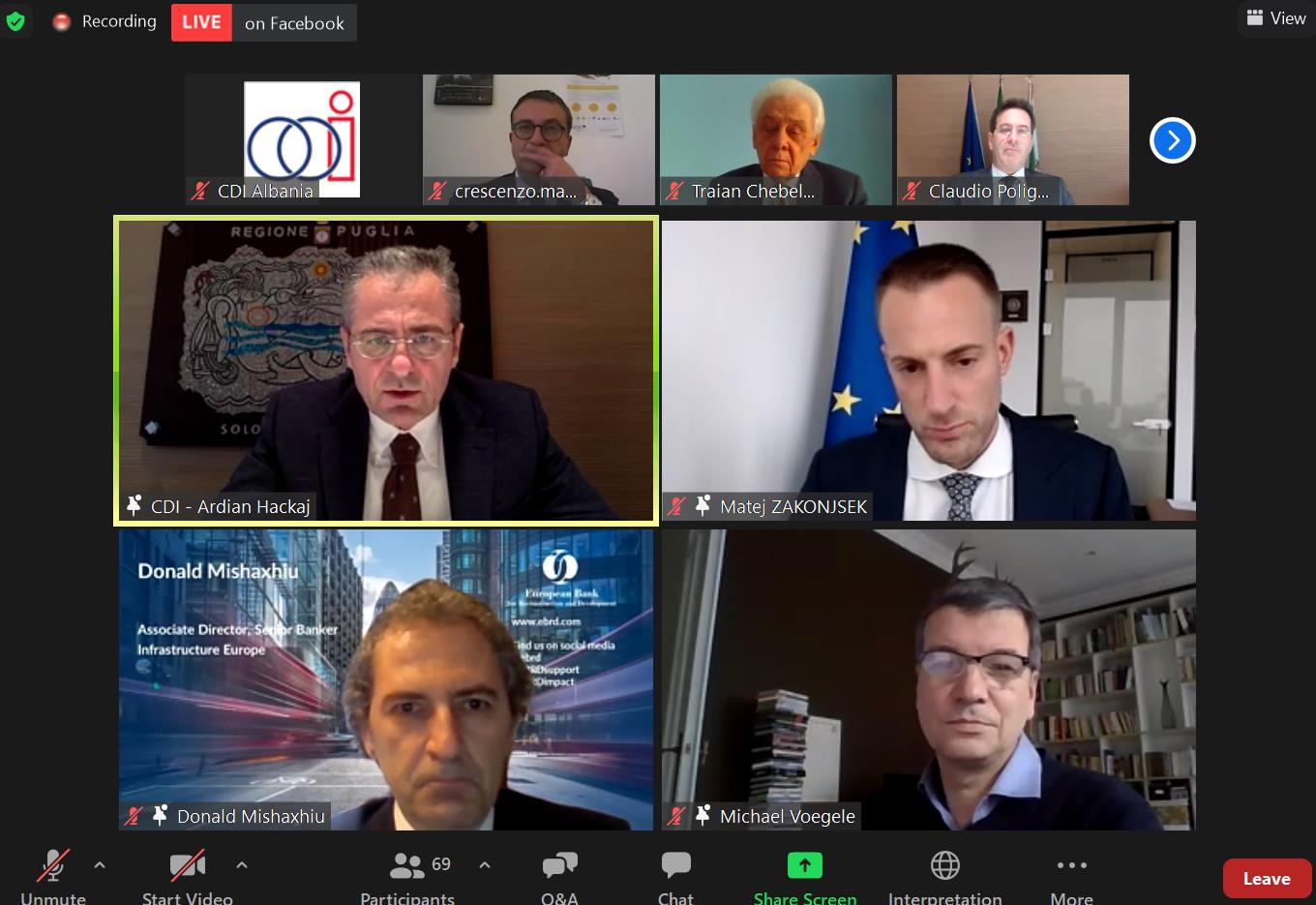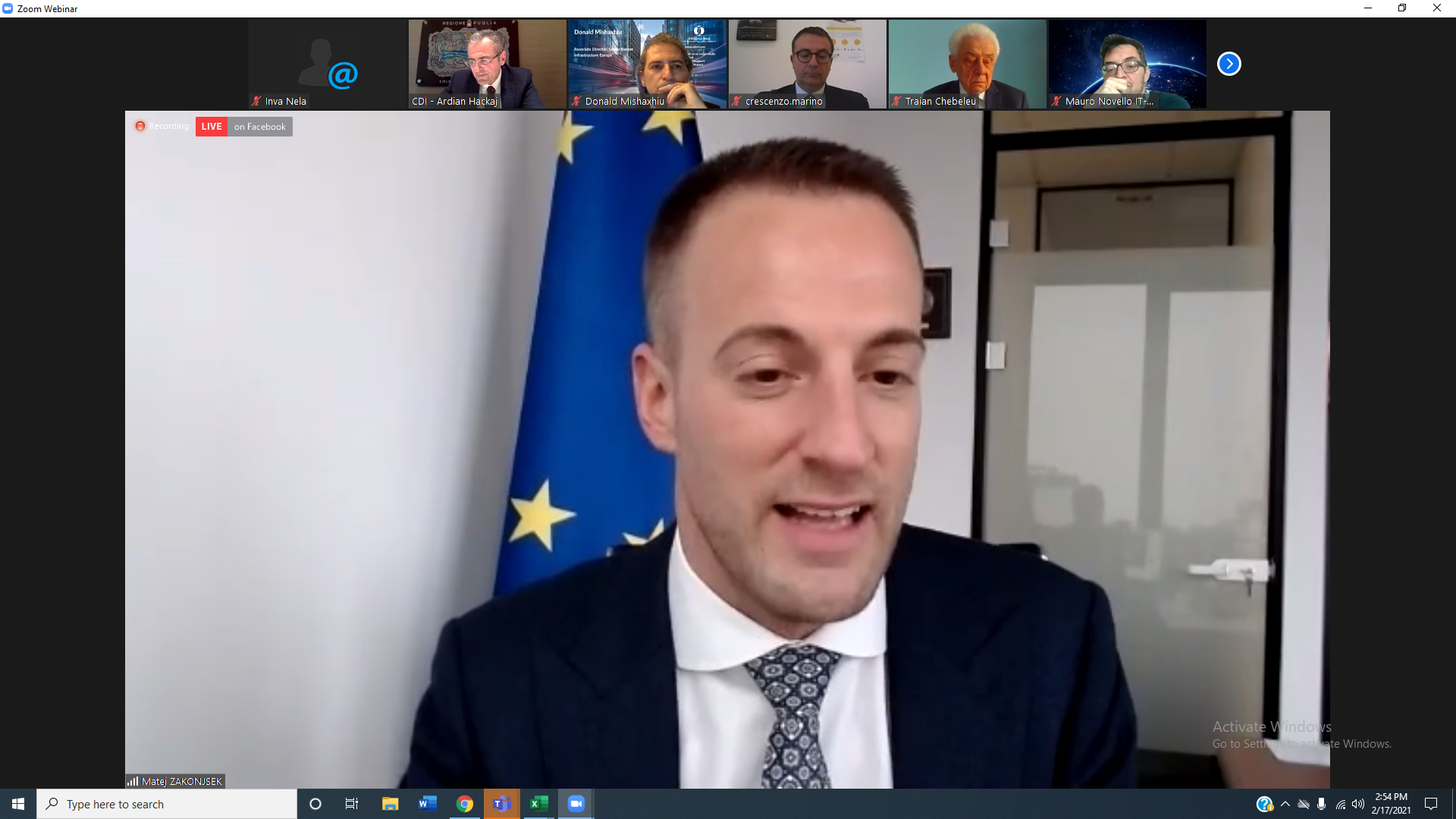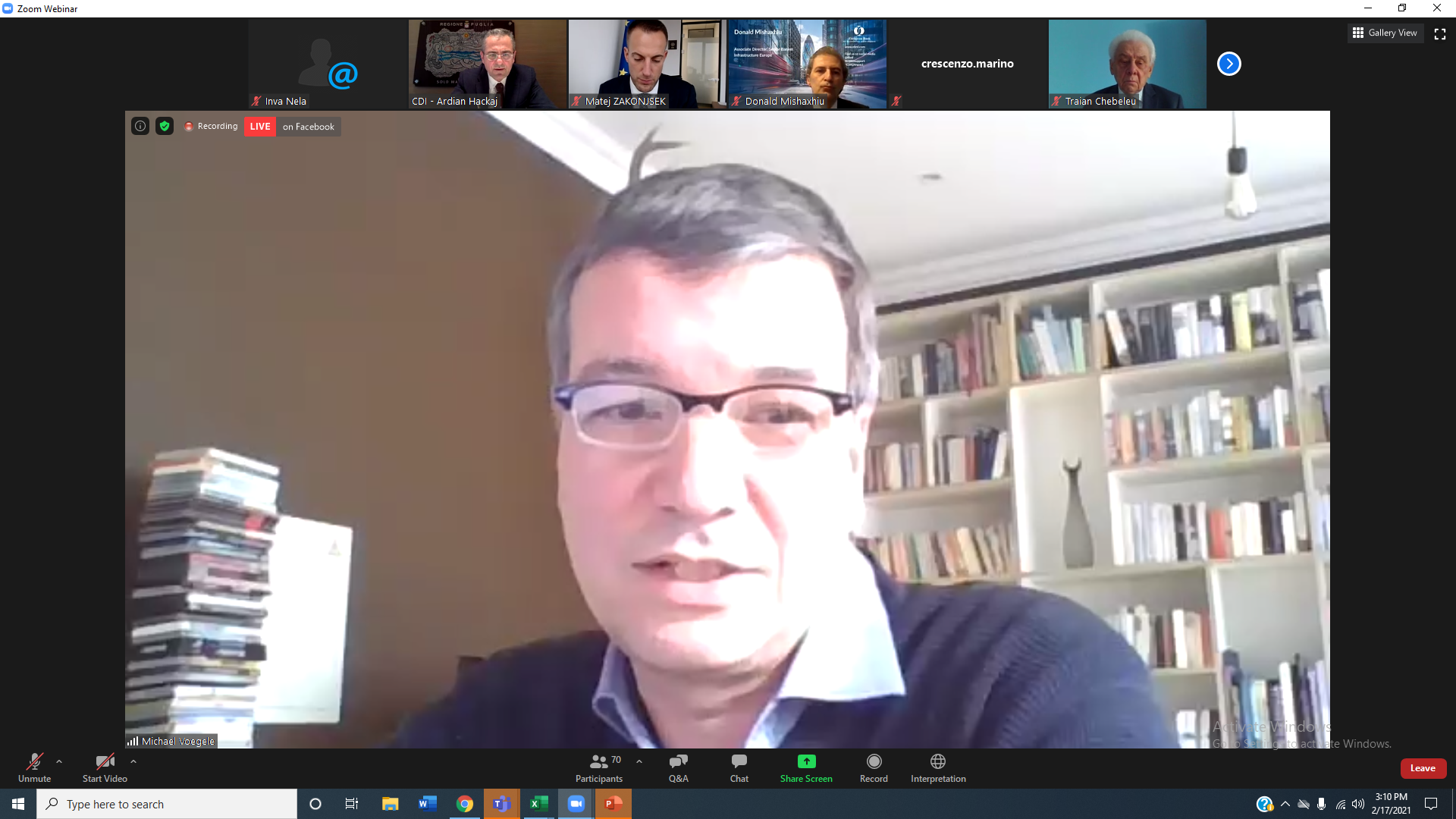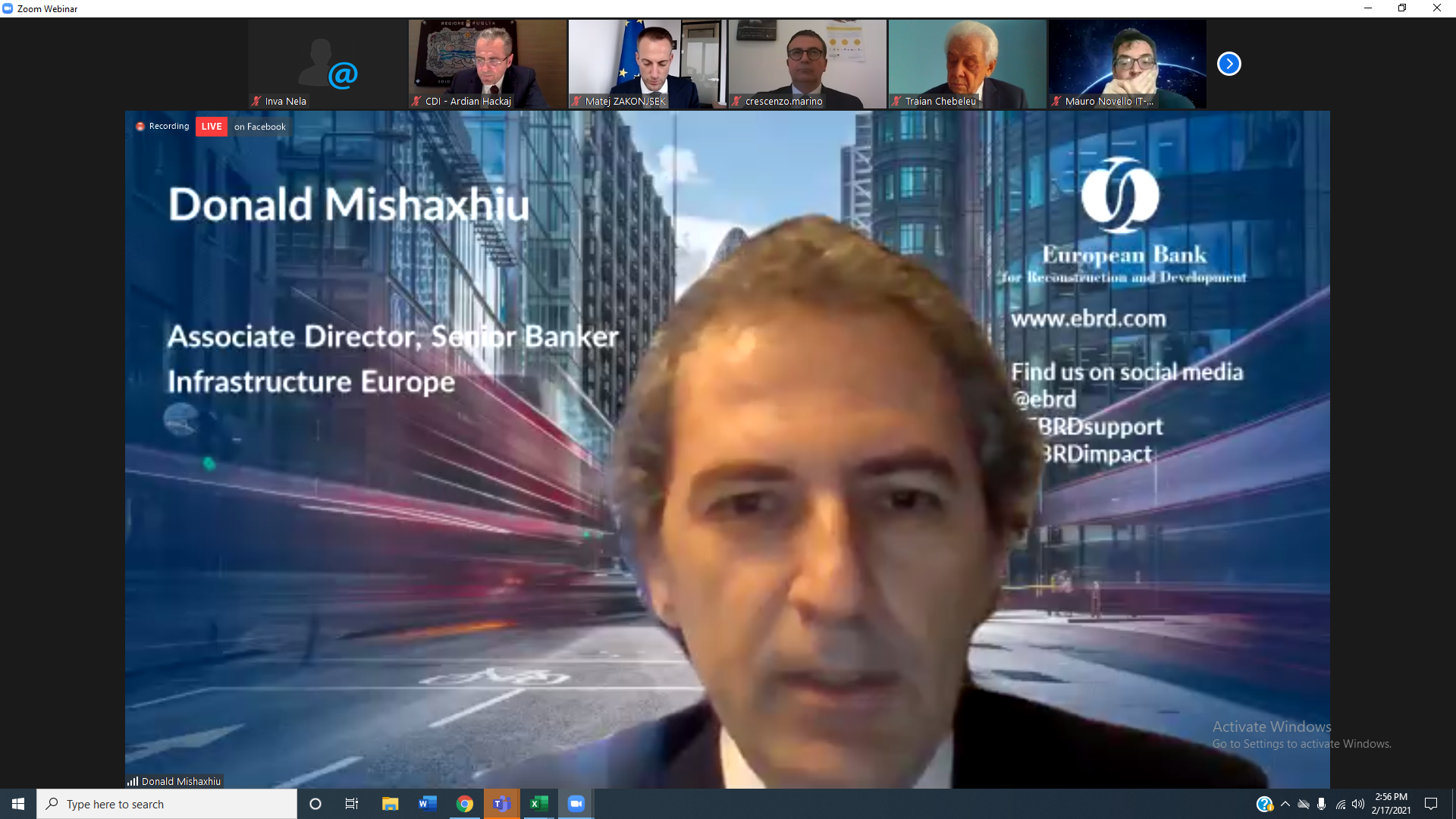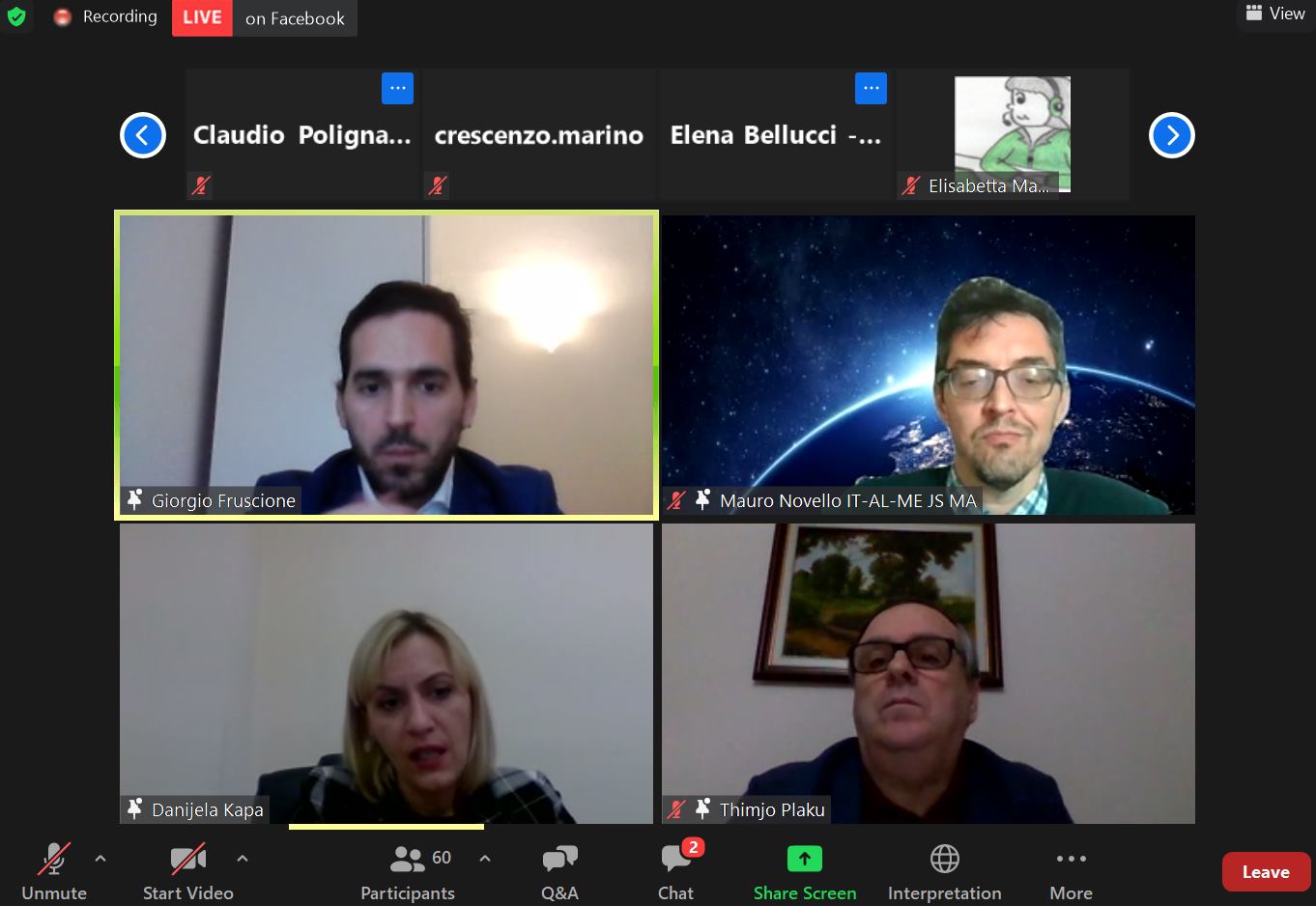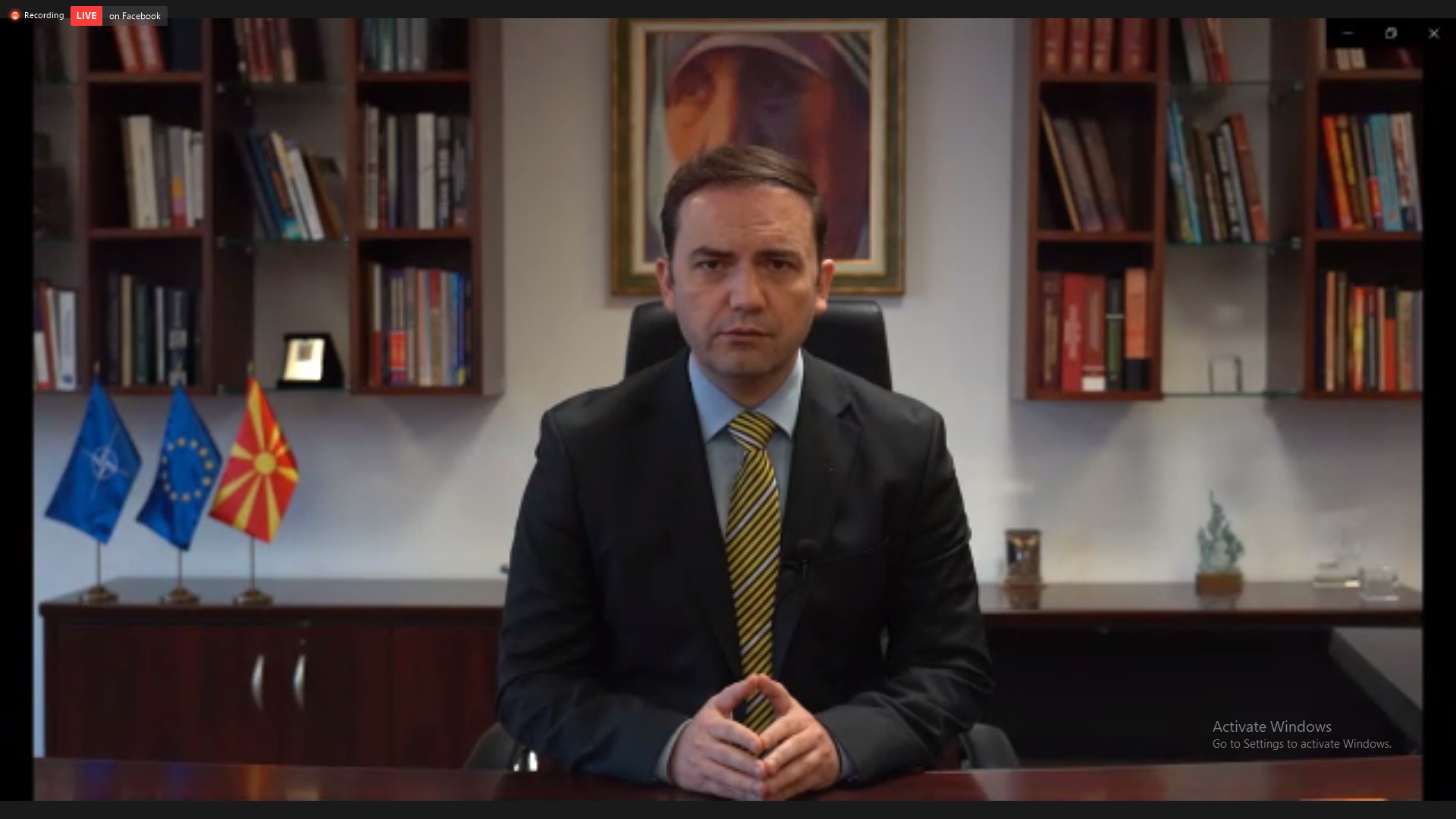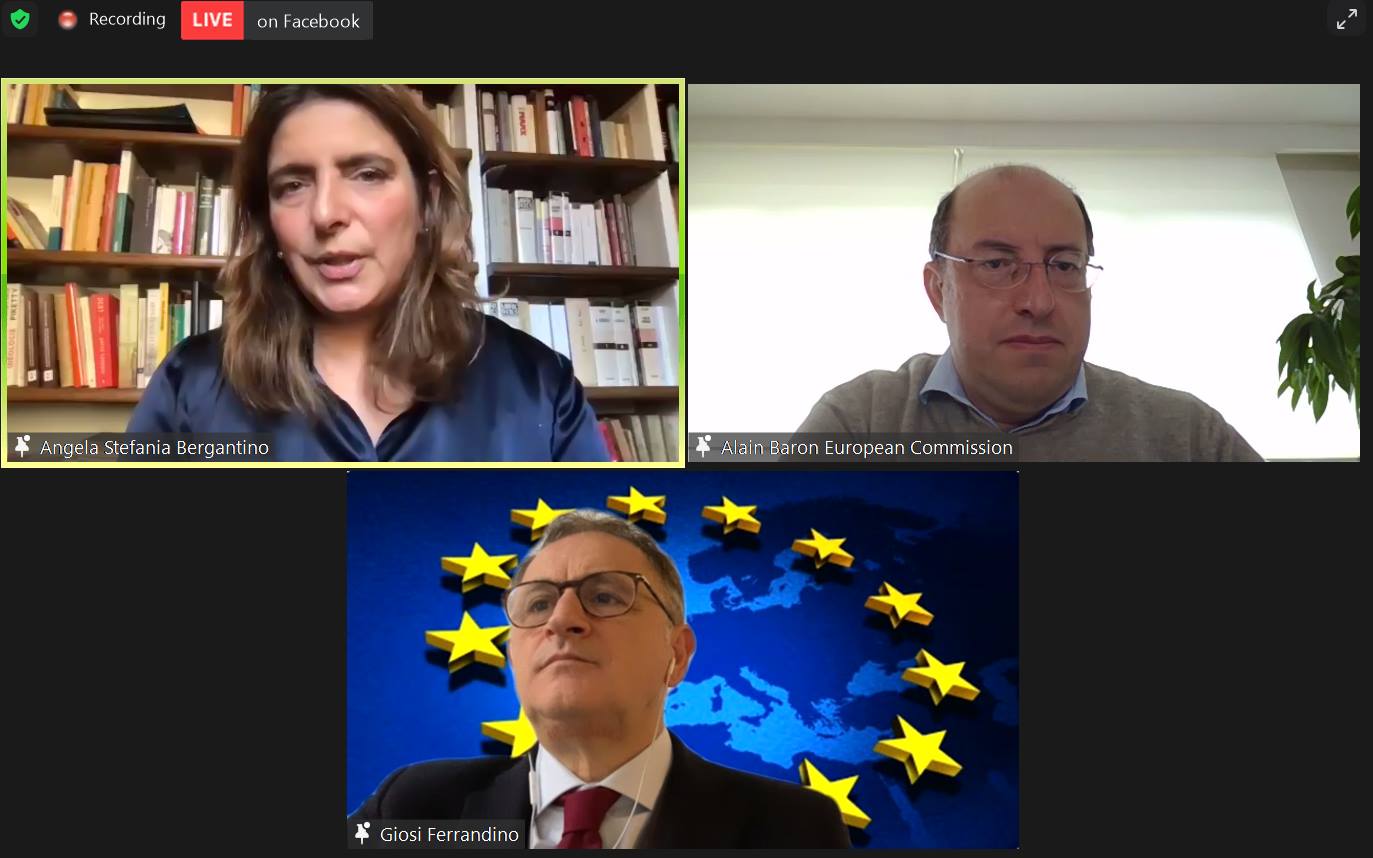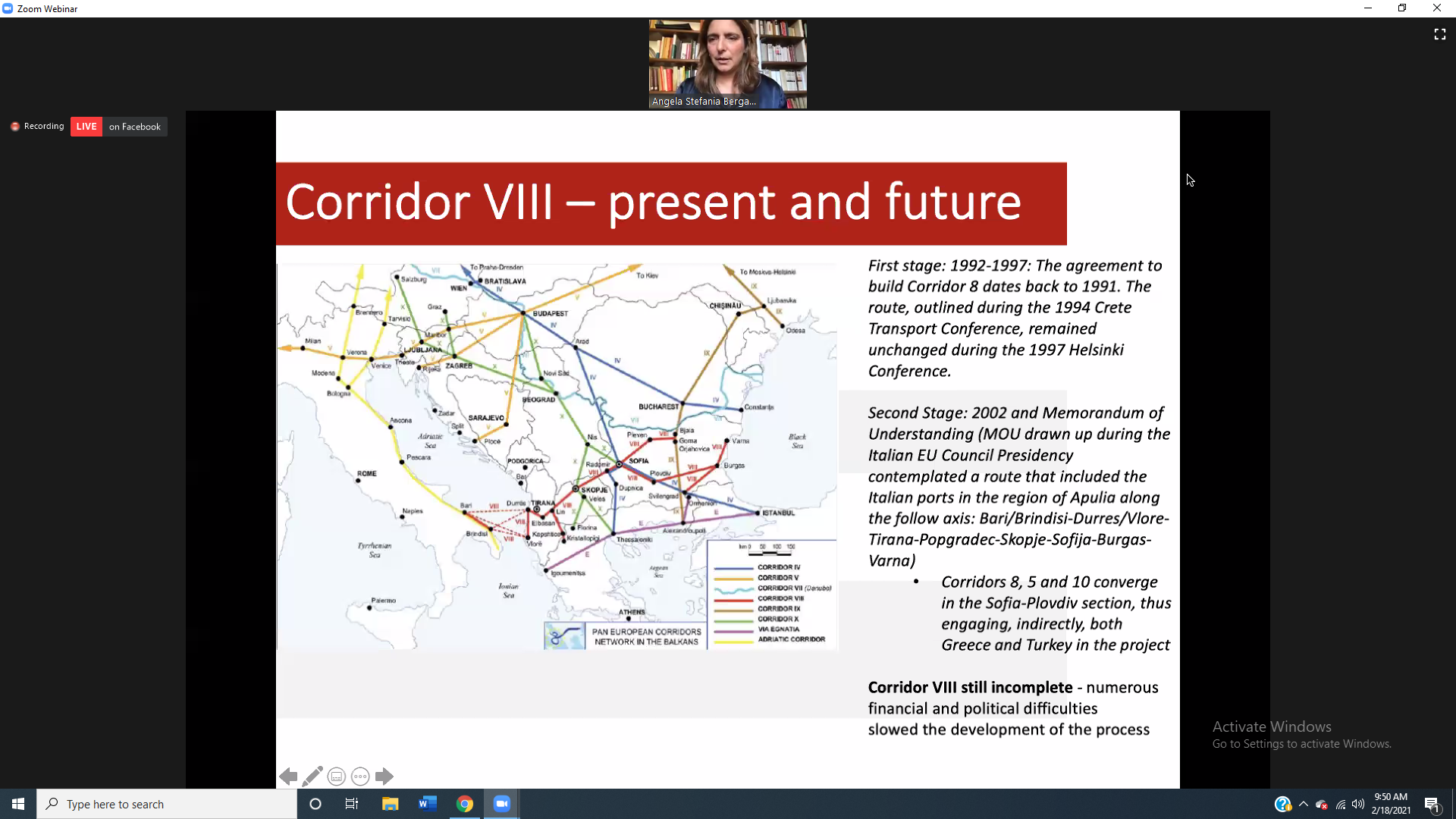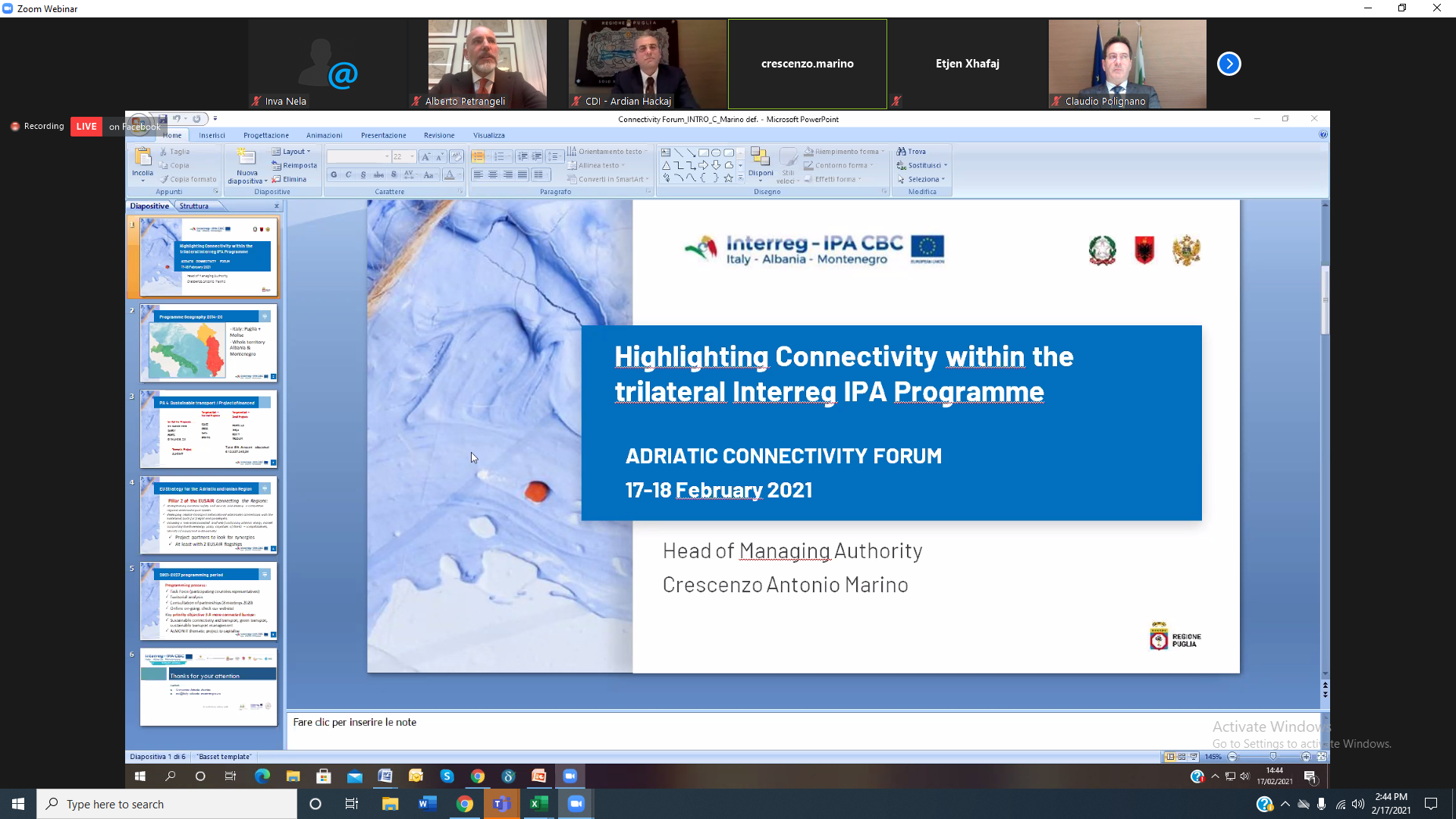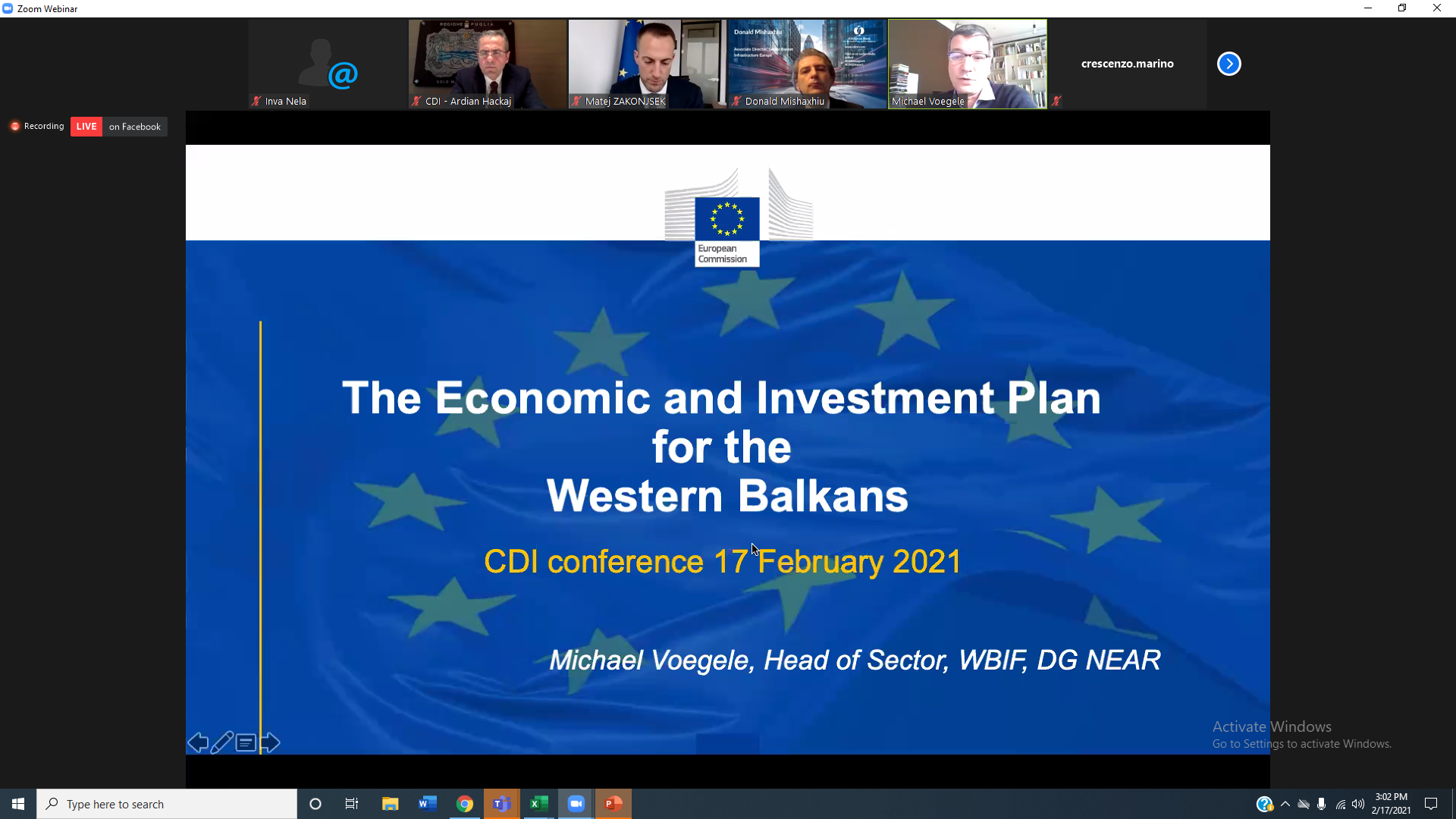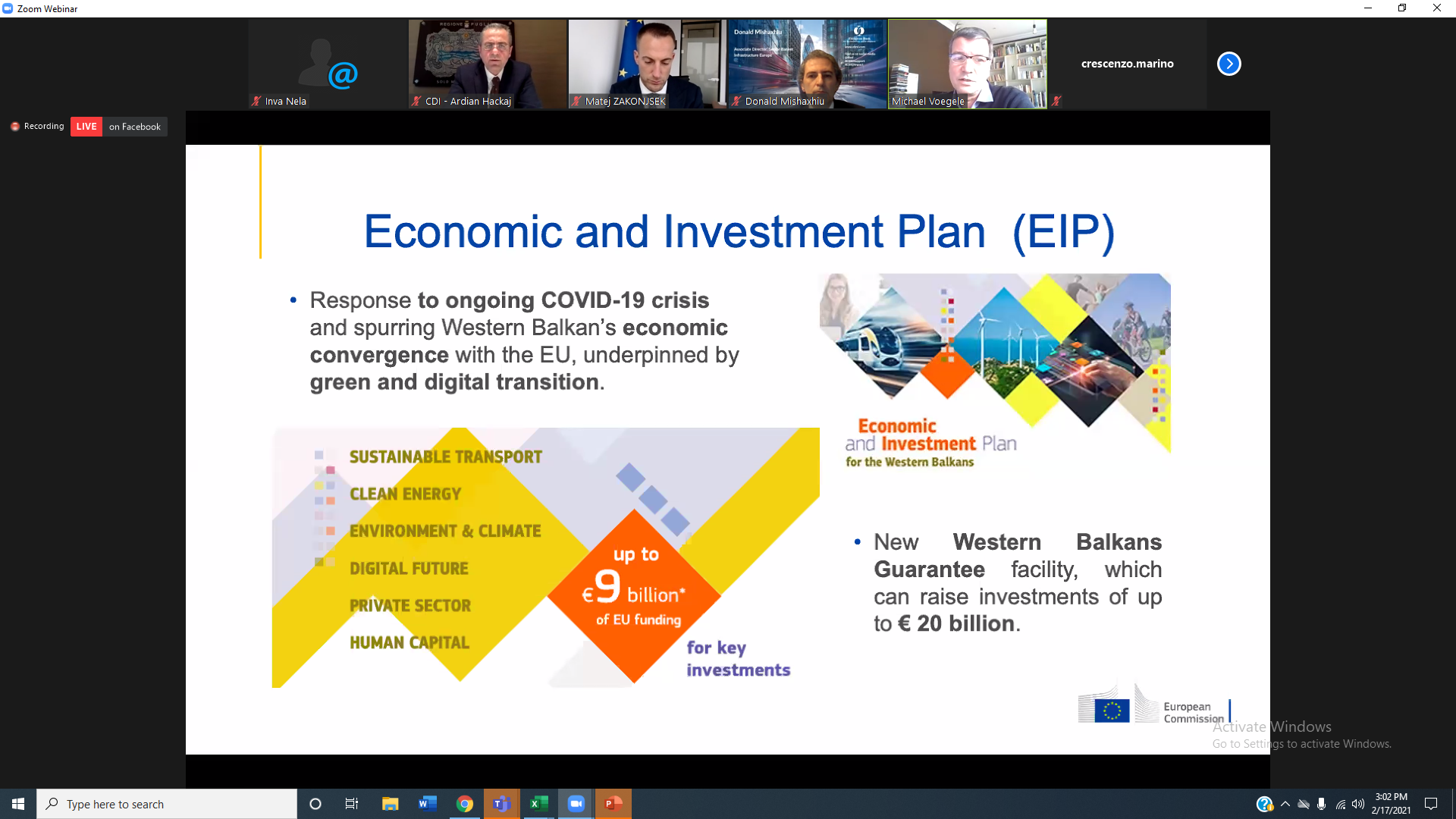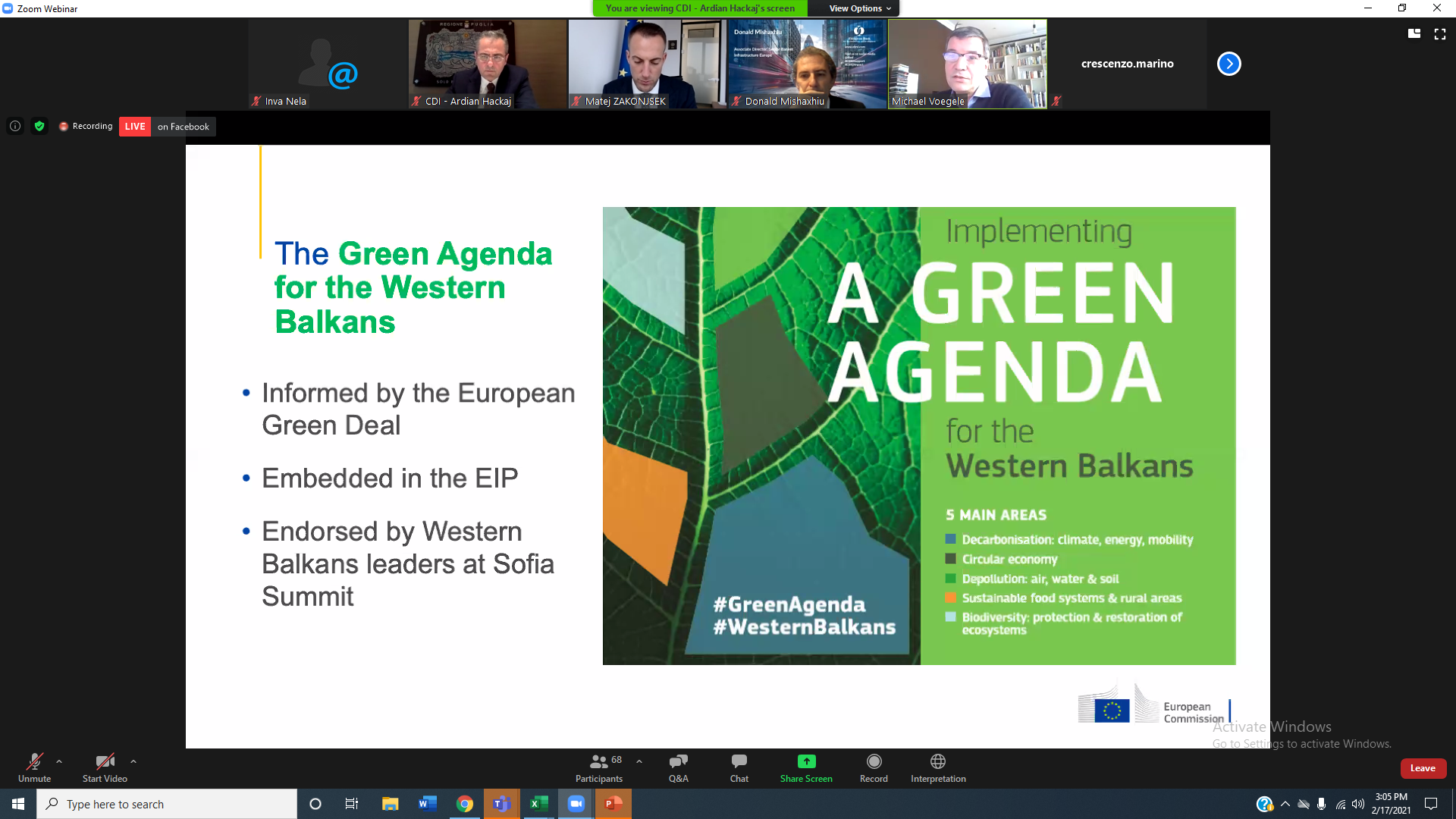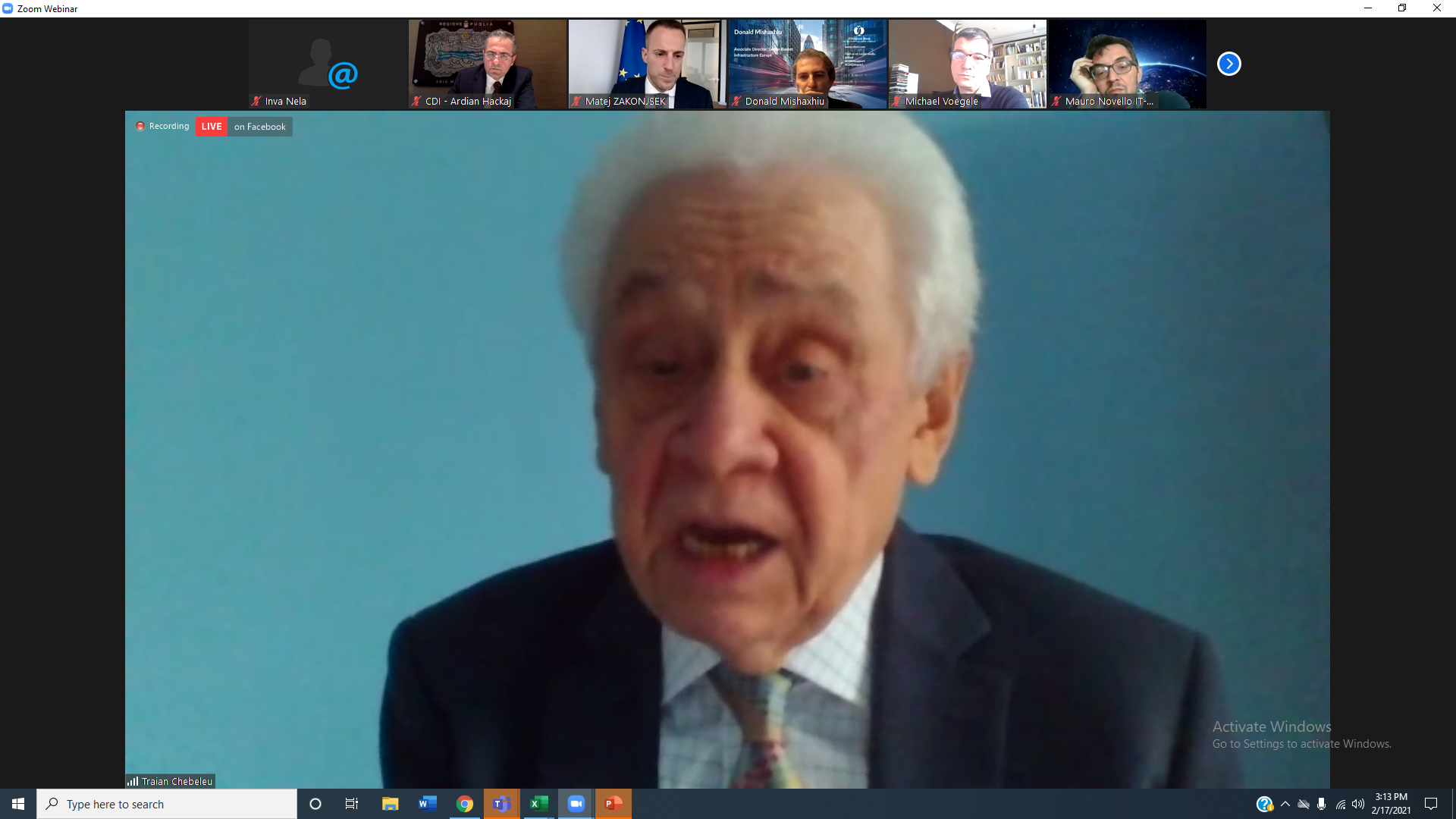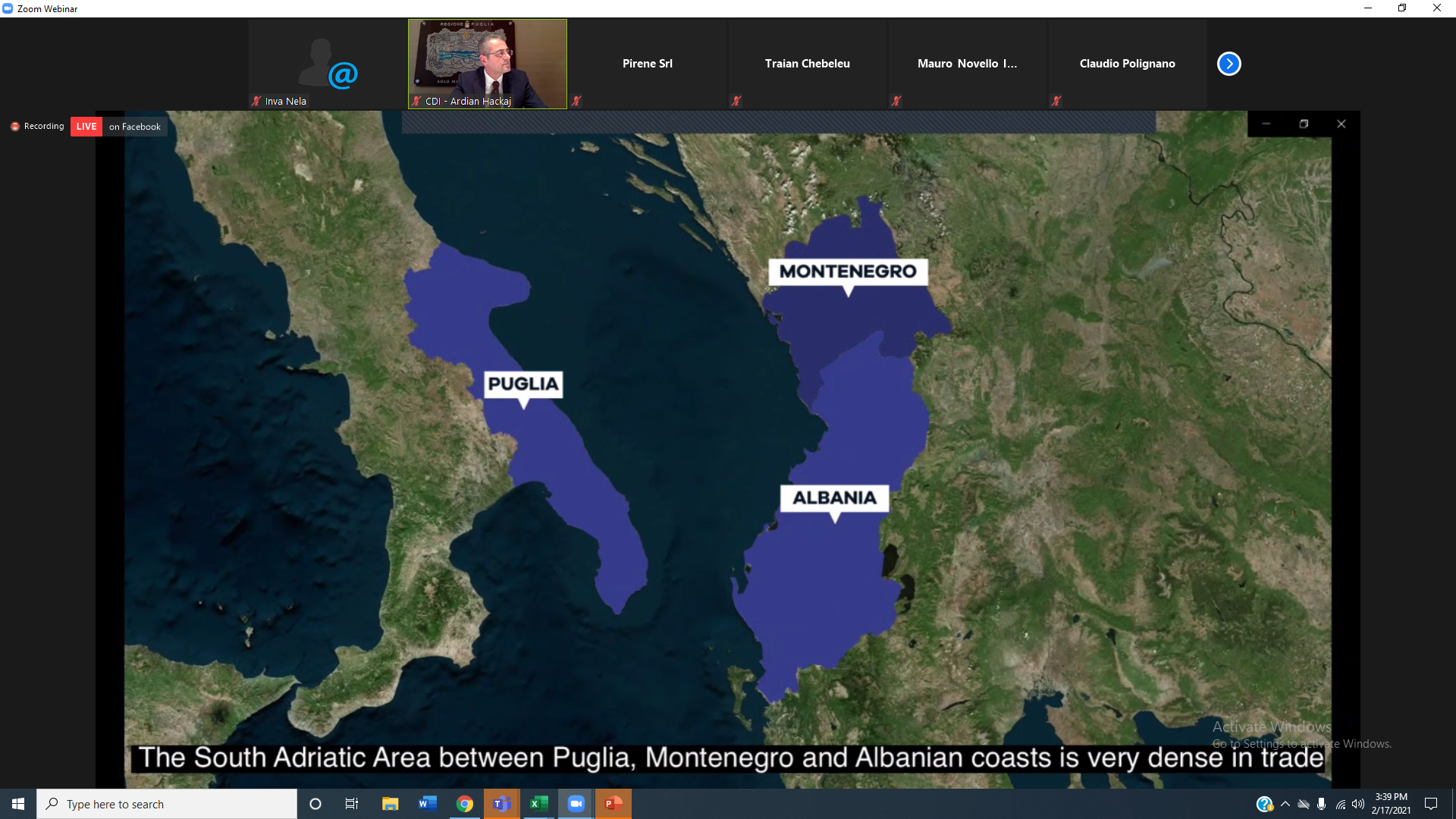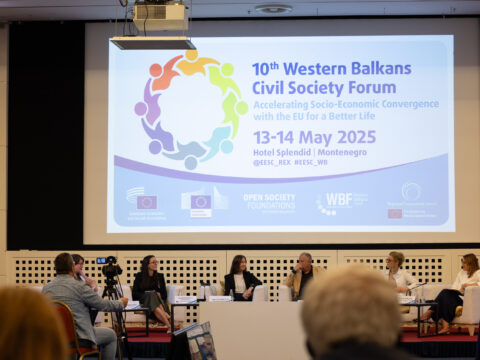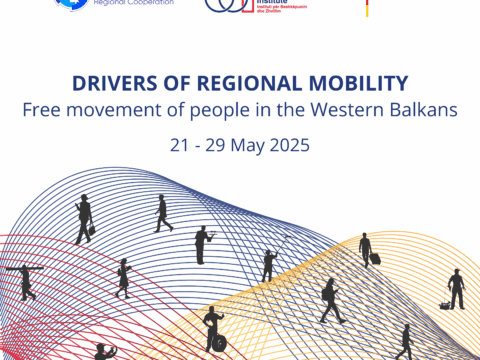Adriatic Connectivity Forum – promoting connectivity in South Adriatic Area
17-18 February 2021
The final event of the South Adriatic Governance – SAGOV project took place online on 17-18 February under the theme “The Adriatic Connectivity Forum- promoting connectivity in South Adriatic Area”. The forum was organized by Puglia Region (SAGOV project partner) in partnership with Cooperation and Development Institute (SAGOV Lead Partner) and brought together a high-level cast of speakers from local, regional and EU institutions, active and vocal in connectivity dynamics.
During two intense days, the forum brought into focus the transport connectivity and the opportunities that may arise from the development of the Connectivity Agenda in the Adriatic and Ionian Macro-regional area, to boost the movement of goods and people from the East towards the heart of Europe and vice-versa. In addition, the event aimed to promote and support the institutional dialogue between different actors and key stakeholders towards an integrated approach between the EUSAIR Strategy, the Trans-European Corridors and the Connectivity agenda in the Western Balkans, in the attempt to place this area in the global map of transport networks.
The event kicked off with the Welcome Notes from Mr. Alessandro Delli Noci – Apulian Regional Minister for Economic Development and International Policies and continued with the Keynote Addresses from Mr. Mladen Bojanic, Montenegrin Minister of Capital Investments, Mr. Etjen Xhafaj, Albanian Deputy Minister of Infrastructure and Energy and Mr. Alberto Petrangeli, Deputy Head of Mission at the Italian Embassy in Tirana – who highlighted that the triangle Puglia – Albania – Montenegro constitute a strategic hub that serves as an entry gate for both EU and the Balkans. All emphasized the importance of SAGOV project in highlighting and bringing into the attention of the policy makers the importance of maritime connectivity.
The first panel “Improving the Connectivity Agenda in the Western Balkans and the cooperation with EU: policies and investment projects” started under the moderation of Mr. Ardian Hackaj, Director of Research at Cooperation and Development Institute and with the participation of Mr. Matej Zakonsek, Director of the Transport Community Secretariat, Mr. Donald Mishaxhiu, Director – Senior banker at the European Bank for Reconstruction and Development (EBRD), Mr. Michael Voegele, from the EU Neighbourhood & Enlargement and Amb. Traian Chebeleu, Deputy Secretary General, Permanent International Secretariat of the Organization of the Black Sea Economic Cooperation – BSEC PERMIS. The panel concluded that project implementation needs to be accompanied by reform measures, strengthening of domestic institutions and regional coordination on joint projects.
The forum continued with the kick of the second panel “The multimodal Corridors system within the EU Strategy for the Adriatic-Ionian region (EUSAIR)” that together with Mr. Giuseppe Catalano, Head of Technical Department for Strategic Infrastructure at the Italian Ministry of Transport and Infrastructure, Mr. Thimjo Plaku, Director for Development of Transport and Infrastructure Policies and Strategies at the Ministry of Infrastructure and Energy, Ms. Danijela Kapa, designated Head of the Department for International Cooperation at the Ministry of Capital Investments – Montenegro and under the moderation of Mr. Giorgio Fruscione – ISPI – Istituto per gli studi di politica internazionale further explored the theme of the multimodal Corridors system within the EU Strategy for the Adriatic – Ionian region (EUSAIR).
Likewise, the second day of Adriatic Connectivity Forum began with a keynote address from Mr. Bujar Osmani, Minister of Foreign Affairs of North Macedonia, who focused on the Initiative 8, as a regional initiative that brings together infrastructure, economies, p2p and institutional cooperation into one Corridor from Adriatic to the Black Sea.
Afterwards, the first panel “Talk with European Institutions – TEN T” kicked off with the participation of Mr. Alain Baron from the EU Commission and Mr. Giuseppe Ferrandino, Member of the European Parliament, under the moderation of Ms. Angela Stefania Bergantino, from the University of Bari and Italian Association of Transport Economics. This session was dedicated to the Adriatic–Ionian Corridor and the Orient– East / Med Core Network (Corridor VIII) in the framework of TEN-T revision process and emphasized that the Corridor 8 is one of very rare horizontal axis that connects Europe. The speakers added that to succeed it requires political will, prioritization of main intervention during its route, modernization, coordinated planning and substantial research on the form of such a multi-modal corridor.
The second panel, reserved to project partners, focused on the SAGOV main results and the strategic role of cross-border cooperation for the transport sector. The project partners presented some of the key outputs of SAGOV project such as the Connectivity Platform – a web based and interactive e-platform with Semaphore system that aims to increase the visibility and coordination of connectivity initiatives linking Italy / Puglia Region, Albania and Montenegro.
In addition, the speakers highlighted that Albania and Montenegro have an excellent cross-border cooperation in infrastructure, while acknowledging that SAGOV has provided a framework that can help coordinate connectivity activities in the region and has promoted the participation of Puglia in this scheme.
The final panel of the two-day forum focused on the key role of South – Adriatic ports in the global transport connectivity network. The panel took place under the moderation of Mr. Enrico Fardella, T.wai – Torino World Affairs Institute and with the participation of Mr. Giuseppe Garofalo, General Director at ASSET – Regione Puglia, Mr. Lucas Bosser, Director for Transport and Accessibility at Conference of peripheral maritime regions, Mr. Pirro Vengu, CEO at the Durres Port Authority and Mr. Alessandro Panaro, Director of Maritime and Mediterranean Economy department at SRM Studi Ricerche Mezzogiorno. The key highlight of this session was attributed to the new initiative “Center of Excellence on Maritime Affairs” – between Durres Port, together with Transport Permanent Secretariat, Cooperation and Development Institute and University of Durres. The panelists also highlighted that Ports that integrate ZES (Economic Special Zones), an integrated governance approach and need to adapt to post Covid19 situation, will define ports in South Adriatic Area.
The agenda of the event can be consulted here. To find out more on SAGOV project and its activities and deliverables, please further consult the official website here.



